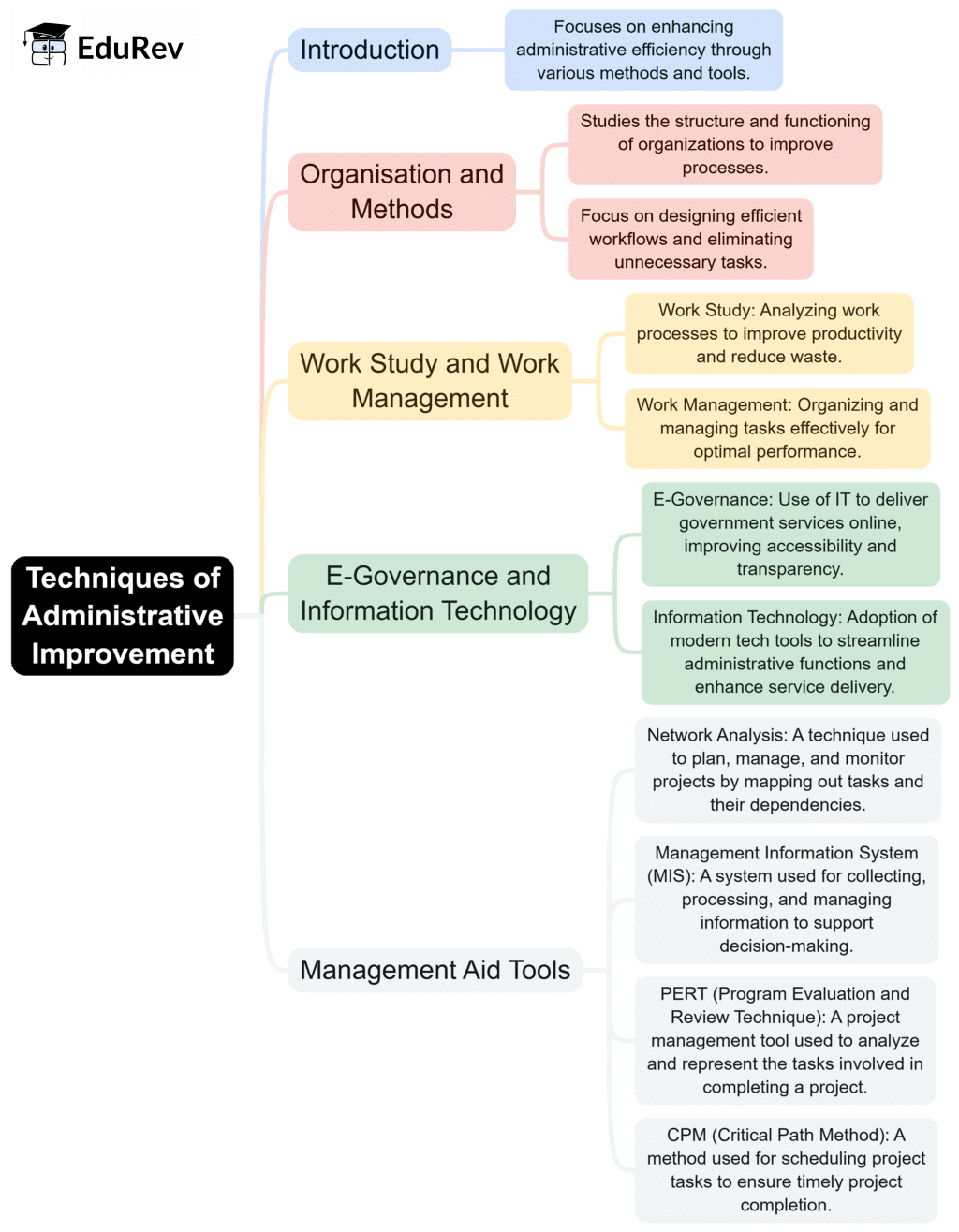UPSC Exam > UPSC Notes > Public Administration Optional for UPSC (Notes) > Mind Map: Techniques of Administrative Improvement
Mind Map: Techniques of Administrative Improvement | Public Administration Optional for UPSC (Notes) PDF Download

The document Mind Map: Techniques of Administrative Improvement | Public Administration Optional for UPSC (Notes) is a part of the UPSC Course Public Administration Optional for UPSC (Notes).
All you need of UPSC at this link: UPSC
|
58 videos|242 docs
|
FAQs on Mind Map: Techniques of Administrative Improvement - Public Administration Optional for UPSC (Notes)
| 1. What are the key techniques for administrative improvement in UPSC preparation? |  |
Ans. Key techniques for administrative improvement in UPSC preparation include time management, effective note-taking, regular revision, mock tests, and seeking feedback. Time management helps in allocating sufficient time for each subject, while effective note-taking ensures that important concepts are easily accessible. Regular revision reinforces memory, mock tests simulate exam conditions, and feedback helps identify areas for improvement.
| 2. How can I enhance my analytical skills for the UPSC exam? |  |
Ans. Enhancing analytical skills for the UPSC exam can be achieved through practice and exposure to diverse materials. Reading newspapers, engaging in group discussions, and solving previous years' question papers can improve analytical thinking. Additionally, practicing case studies and participating in debates can sharpen the ability to analyze situations critically.
| 3. What role does time management play in UPSC preparation? |  |
Ans. Time management is crucial in UPSC preparation as it allows candidates to efficiently allocate time to various subjects and topics. It helps in creating a balanced study schedule, ensuring that all subjects are covered adequately before the exam. Effective time management reduces stress and enhances productivity, leading to better preparation outcomes.
| 4. What are some effective revision strategies for UPSC aspirants? |  |
Ans. Effective revision strategies for UPSC aspirants include spaced repetition, summarizing notes, and teaching concepts to others. Spaced repetition involves revisiting topics at intervals, which enhances retention. Summarizing notes helps condense information into key points, making it easier to review. Teaching others reinforces understanding and identifies any gaps in knowledge.
| 5. How important is feedback in the process of administrative improvement for UPSC? |  |
Ans. Feedback is vital in the process of administrative improvement for UPSC as it provides insights into strengths and weaknesses. Regular feedback from mentors, peers, or mock test evaluations helps identify areas that need more focus. It encourages continuous improvement and helps aspirants adapt their study strategies to enhance performance.
Related Searches





















